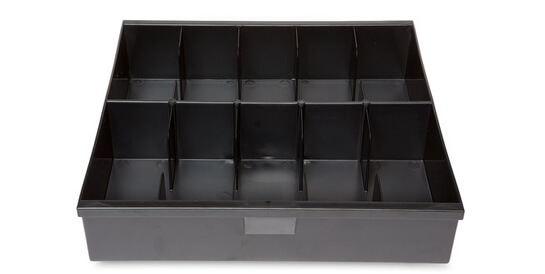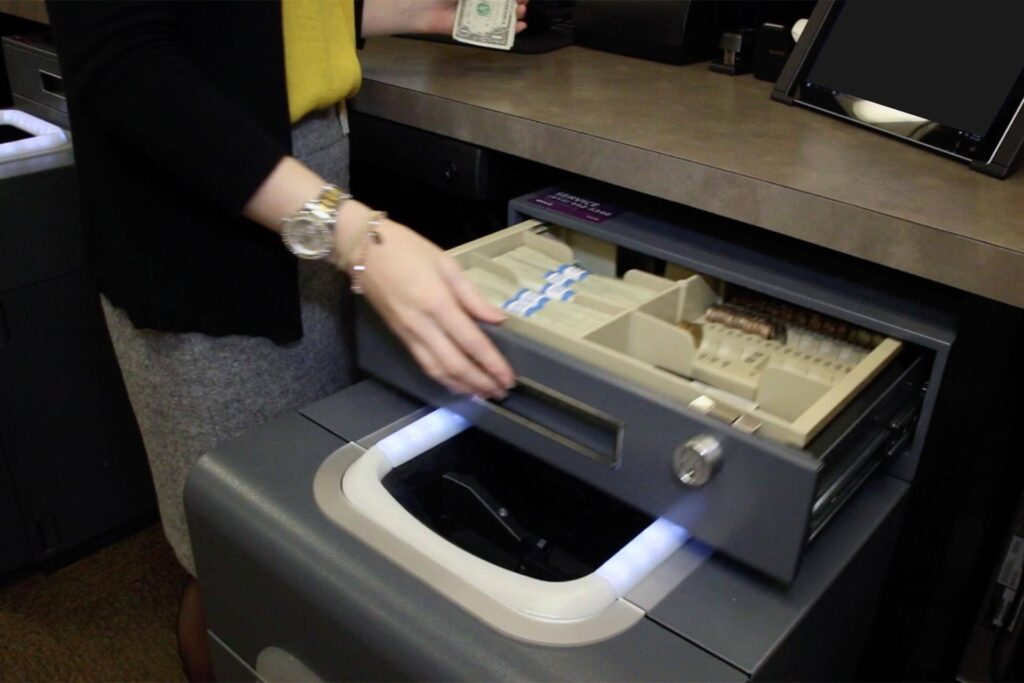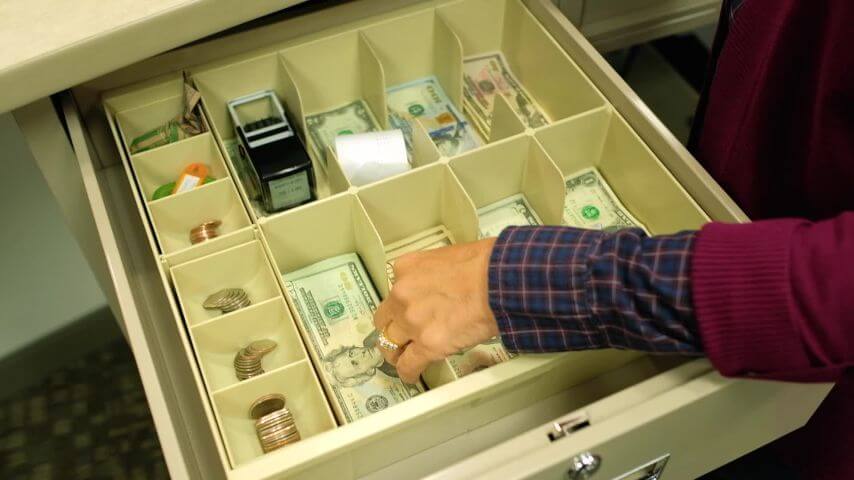When you are dealing with money on a daily basis like a bank teller, maintaining one’s cash drawer is a huge aspect of the job. With large sums of money changing hands, it makes perfect sense to keep things tidy so you can account for everything at the end of the day.
If you are having some issues balancing your teller cash tray, and it can happen to the best of us, be sure to check out the following tips to help you get started on the right foot.
Table of Contents
Balancing A Teller Cash Tray
As the need to keep the books and records as straight as possible is paramount, most, if not all cash trays need to be balanced daily or after a work shift. This is to prevent any errors from not being detected and fixed, or in some cases, the possibility of unauthorized transactions.
If you getting ready to take over for the day, here’s what you need to do:
Keeping Track

Be sure to always count the cash tray at the start of your day. This will ensure that everything tallies up with what was recorded the day before. The different cash denominations need to check out, especially in the rare case of the system in use not being a digital one. For digital systems, there are reminders to help you check if the cash is not balanced correctly.
Also Read
By ensuring that everything is in order, you are in the right condition to start the day right without the fear that a past discrepancy will cause you problems later in the day.
Also read 5 Office Organization Ideas to Scale Up Productivity.
Check The Money Flow

As a teller, there will be instances where you will need to replenish the cash drawer, especially after bigger transactions. This will require cash to be transported from the vault to your drawer, and help ensure that there is always enough for customers regardless of their requests.
This will always require documentation on how much money is being requested, and where is it headed to. By checking the requests and making sure nothing is missing, you are removing any room for error.
Handle With Care

You are most certainly going to be handling plenty of cash receipts, and this is where following the designated steps in any bank or having your own clear system is going to be extremely important. Every transaction should have a record, such as utilizing a computer program to take note of everything going in and out of the drawer.
With a digital record of all the transactions in any given day, you have concrete proof of the cash receipts, withdrawals, checks, and more that you have been handling during your shift. In the case of any mistake or doubt, you can search through the history to find out what went wrong.
Focusing On The Job

Another aspect of the job that can cause problems is the lack of focus when actually dealing with customers and the cash involved. Essentially, things can go wrong at any point in a transaction, and it is up to the teller to make sure that the money changing hands is accurate before completing anything.
To be sure, it is always wise to double check the money at least a few times, be it handing a sum over to the customer or receiving money to place in your teller tray. Should the amount differ on your counts, you have another chance to verify it before confidently completing the transaction. This allows you to minimize errors and prevent any mishaps from happening at any point in time.
Depending on how the workplace is set up, it is highly unlikely that there will only be one teller assigned to one cash tray. With changing shifts and personnel, it is your responsibility to make sure everything is in order before someone else takes over.
By making sure you are organized in everything you do and the way you handle your transactions, such as counting money several times, checking all the information before completing transactions, and keeping a detailed record of cash going in and out, you can prevent yourself from making mistakes and paying the price.






